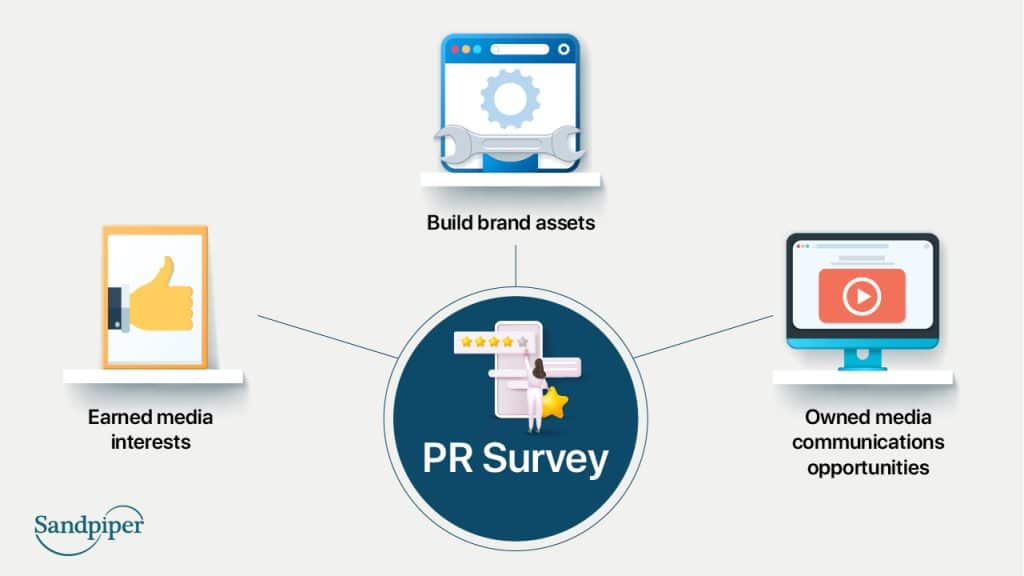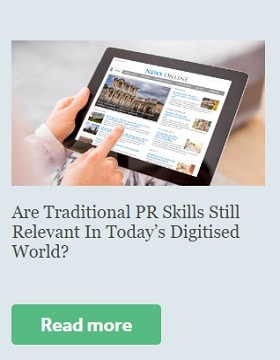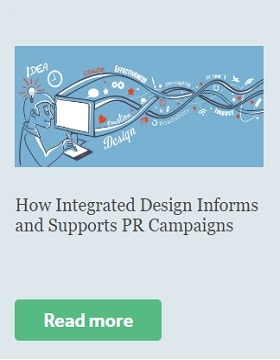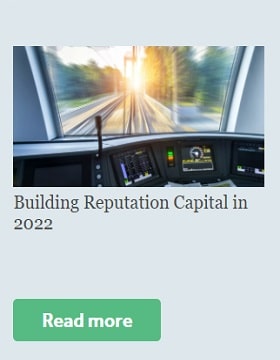
Mind the Reputation Gap in the Professional Services Sector

Public Affairs Tracker: The Importance of Government Relations in Today’s World
How PR Surveys Create Impact for Brands
August 2022

by Samantha Siu, Senior Account Manager of Sandpiper based in Singapore. Samantha is a corporate and public affairs specialist with ten years’ experience working in in-house and consultancy roles in Hong Kong and Singapore. Her areas of expertise include media relations, technology PR, public affairs, professional services
In an increasingly competitive corporate space, brands are jostling for the attention of their customers. How can organisations cut through the noise, boost awareness and convey their brand essence to busy consumers with short attention spans? As an Asia-Pacific PR agency representing numerous clients across sectors like technology, health, professional services, finance and many more, it’s a question we ponder often. One powerful technique can be the PR survey. It presents numerous benefits for brands and is often a highly cost-effective way to generate powerful column inches, increasing consumer awareness and becoming a valued asset in years to come.
As with any powerful communications tactic, it’s important to understand the best ways to approach PR surveys to ensure maximum potential benefits for a brand. For many, the chance to take ownership of a particular niche or subject makes public relations surveys a highly appealing public relations tactic.

PR surveys build powerful brand assets
PR surveys provide brands the opportunity to create conversations beyond the solution, product or service on offer. This is highly appealing to brands seeking to generate broader awareness of its mission, vision and brand values. Surveys reveal insights and produce statistics that can shed light on issues that’re relevant to the company brand values. By revisiting the survey topics on an annual basis, the PR survey immediately adds depth. Not only can the latest statistics appeal to the audience, the opportunity to compare results against previous years allows for further insight and the opportunity to demonstrate changing trends over time. Organisations taking a long-term approach to the PR survey strategy are therefore able to build powerful brand assets and take ownership of an issue in the minds of both the media and customers.
PR surveys generate media interests
Covering a diverse population in Asia Pacific, PR surveys provide the opportunity to create appealing story angles for international media by comparing results by country. Often, survey results can demonstrate interesting variations by country in the vast Asia-Pacific population. Here at Sandpiper, we’ve found this to be the case with our Reputation Capital report for 2022. Surveying the populations of eleven countries in Asia-Pacific markets to determine the most important trends for reputation management, we found fascinating differences in the ways in which consumers form opinions on reputation drivers. Brands are potentially likely to identify similar discrepancies between opinions and behaviours amongst similar audiences, presenting a strong news hook for media stories across several regional areas and countries, delivering the potential to secure enviable column inches in coverage in influential media outlets all underpinning a broader PR strategy.
PR surveys open up opportunities for follow-up multichannel communications
PR surveys require considerable investment. It is important to maximise the value and deliver results over the long term. Many brands create impact with the release of surveys, but fail to capture sustained results with repurposing. Releasing surveys can create additional assets for a brand, such as dedicated website landing pages, blog content, white paper, social media content, webinars, speaking opportunities, and more. Adopting a multifaceted approach will help create sustained awareness and interest over the longer term and make the return on investment in PR survey far more beneficial.
Successful PR surveys require a strategic approach
The pitfalls when using surveys as a PR tool are considerable, and must be taken into account to ensure maximum impact and to avoid potential crisis. Some common mistakes tech brands make with PR surveys should be carefully considered before proceeding.
- Failing to align the topic to the brand
When the questions in the survey are lacking relevance to the brand and its values, the theme of the PR survey questions can eclipse the brand values. Unfortunately, the brand itself then becomes an afterthought in the story. Media coverage can be generated that conveys few brand messages, resulting in impact, but achieving little when it comes to brand recognition. Therefore, it’s important to carefully align the topic of the PR survey questions with the brand values and the solution it offers to ensure that the brand remains an integral part of the story.
Common mistakes to avoid when planning a PR Survey:
- Failing to align the topic to the brand
- Proving something the audience already
- Poor survey methodology can erode trust
- Proving something we already know to be true
The most successful PR surveys generate media coverage on a topic because there’s an element of interest, intrigue or surprise about the results. Investing in a survey can be highly ineffective if the results simply reinforce a commonly-held belief. For example, a survey showing that working mothers feel overwhelmed, or that business owners struggle with cash flow may not gain traction with the media, because the results are simply not particularly insightful.
Therefore, it’s important to craft PR research topics strategically, to ensure that true insight can be gained from the angle, to increase chances of media interest as well as usefulness to the intended audience. Similarly, brands need to show thought leadership on the issue. Sharing insightful analysis elevates the survey story from simply an interesting report into a communications tool that positions your brand experts as opinion leaders. By sharing comprehensive commentary and analysis in the form of quotes and placing media interviews with brand spokespersons, not only is there more potential to strengthen brand awareness , it also helps build up the profile of the relevant company executives.
- Poor survey methodology can erode trust
In order to generate reliable results, surveys require considerable expertise. While it can be necessary to have an idea of the topics to cover, surveys cannot include questions that lead respondents to a particularly desired conclusion. It’s important for PR survey reports to detail the methodology of the survey process, including the questions asked. Any hint of questions that influence partiality will immediately reduce the impact and trustability of the survey results, which can be damaging for a brand’s reputation. Similarly, poor methodology such as asking too few questions, surveying too few people or making the survey technology difficult to use will impact the validity of the survey results. Therefore, partnering with the right research organisations to provide trustworthy, methodical and reliable research studies is imperative to ensure the data stands up to scrutiny.
Successful PR surveys are relevant and timely
Reputable survey providers are able to conduct PR research relatively rapidly. This can present an agile brand the opportunity to jump onto an evolving news story and deliver valuable insights on a hot topic. With the turnaround between strategy and execution only a matter of days, it’s possible for PR surveys to be conducted quickly, allowing brands to align themselves with an issue that’s proven to be a topic of interest in the media.
Undoubtedly, with the numerous benefits PR surveys offer brands, it’s a timeless yet effective PR strategy that brands would be wise to embrace as part of their communications strategy.
You may also like:




